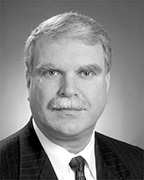Many of Boston’s landmark office towers are entering middle age. Yes it’s true. 200 Clarendon St., formerly known as the Hancock Tower, is about to turn 40, having opened in 1976. Indeed, the average age of the office towers in the city is about 30 years old. But new buildings are on their way and they are not just recent versions of the past generation of mega-projects.
Newer buildings are able to take advantage of construction technologies that create better office environments for tenants that include open floor plans and collaborative space layouts. These are pricier venues, however, even when paying a premium, tenants are sometimes able to reduce their space needs to 75%-80% of their older footprint, thereby mitigating overall occupancy costs.
Development is transforming downtown and the Back Bay as well as the Seaport. Millennium Tower is a signature glass-clad residential project that as of this writing has topped off at 685 feet. It substantially changes the city’s skyline. Another residential tower is taking shape on Nashua Street adjacent to TD Garden, which at 415 feet in height, it will bring 503 apartments to the market in a 38-story tower. Finally, let’s not forget One Dalton St. which is a 700 foot luxury residential tower now under construction that will also be the location of Boston’s second Four Seasons Hotel.
While the development of new residential units really requires its own detailed narrative, suffice it to say that the demand for new housing in downtown, the Back Bay, Seaport and Cambridge has prompted a vast wave of new construction initiatives. Prompted by demand from workers seeking the “live-work-play” amenity of city living and empty nesters selling their suburban homes, vacancy rates remain relatively low despite the amount of new product. While rental concessions have increased of late, low interest rates, sustained demand and limited vacancy rates are still prompting new development initiatives.
Explaining the ongoing narrative in the Seaport is akin to herding cats. Suffice it to say that the extraordinary development that has taken place has yet to slow. 101 Seaport Blvd. 100 Northern Ave., and 121 Seaport Blvd. alone account for an additional 1.2 million s/f of new space.
Cross the Charles River and you will encounter another hot real estate market with at least 10 major development projects under construction including over 2 million s/f of lab space in Cambridge. Novartis is moving into two new buildings at 181 Mass Ave. that comprises Lab, office and retail space totaling 550,000 s/f. MIT and Forest City are building 300,000 s/f for Millennium Pharmaceuticals at 300 Mass Ave. In nearby Somerville, Partners Healthcare is taking 700,000 s/f in the Assembly Row development.
Further into the suburban market in Waltham, 275 Wyman St., 10 City Point, 130 City Point and 1265 Main St. are all office buildings scheduled for delivery from Q4 2015 through Q4 2016 and comprise over 750,000 s/f of new office product. Each of these projects has secured a major anchor tenant.
Within the I-495 outer market, there has been limited new office construction due to sustained availability rates exceeding 20%. This is the last major market to experience growth, however, brokers report increased activity, positive absorption and stronger rental rates. The strong recovery in the real estate market that began in the Boston and Cambridge metro core and then moved out to Rte. 128 is having a positive impact in along the 495 beltway, yet the market remains in comeback status at this time.
We are living at a time of a broad construction resurgence for the city of Boston and the metro area. Boston’s economic focus on technology, education and healthcare is driving increased population and employment growth and the resultant explosion in construction that we see around us. This growth is truly impressive and exciting and the very nature of this recent real estate market is a once in a multi-generation phenomenon.
Enjoy it while it lasts because all real estate cycles, good or bad, eventually come to an end.
Donald Bouchard CRE, is a senior vice president at Lincoln Property Company in Boston and the 2015 chair of the New England Chapter of the Counselors of Real Estate (CRE).

